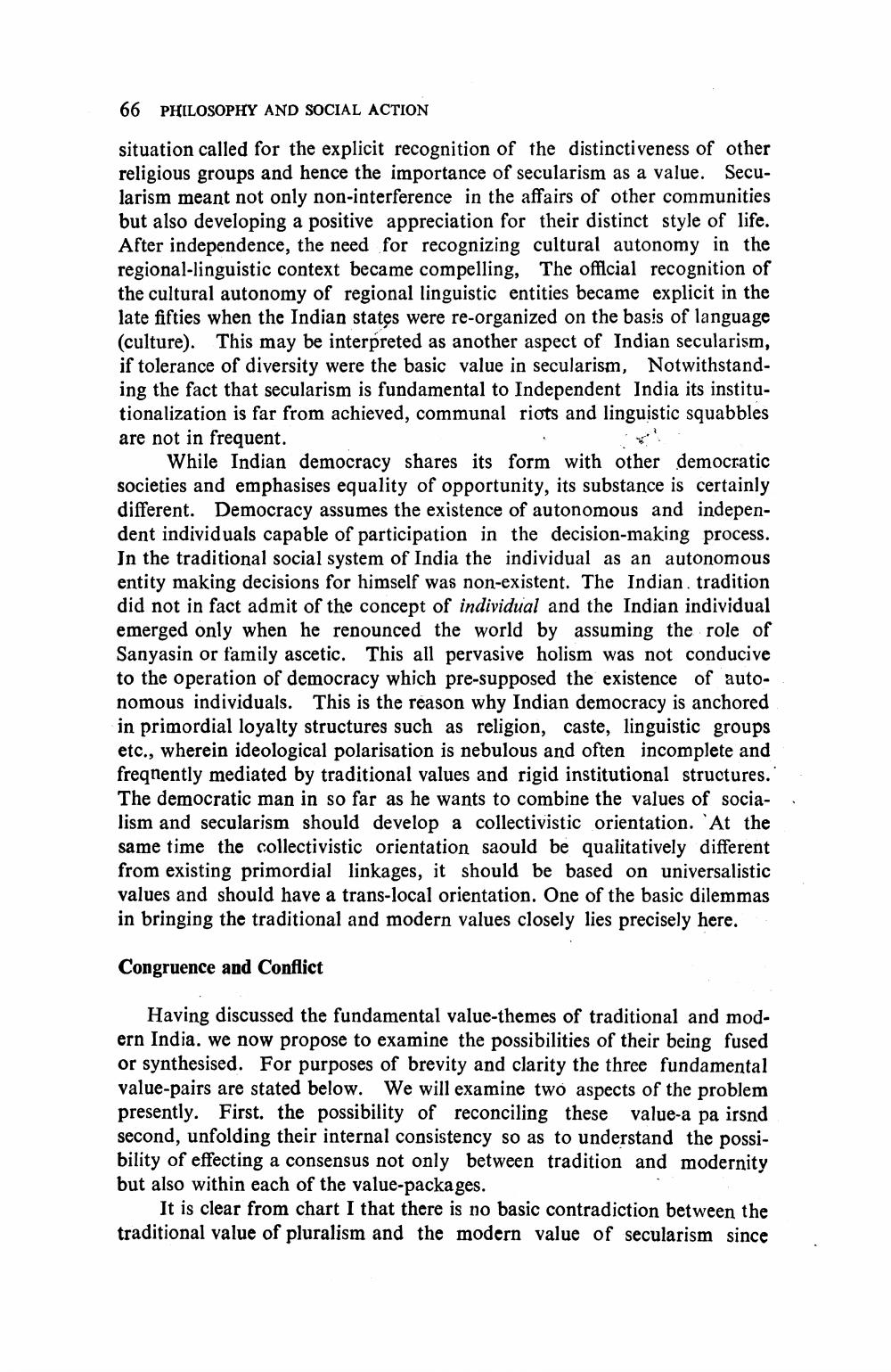________________
66 PHILOSOPHY AND SOCIAL ACTION
situation called for the explicit recognition of the distinctiveness of other religious groups and hence the importance of secularism as a value. Secularism meant not only non-interference in the affairs of other communities but also developing a positive appreciation for their distinct style of life. After independence, the need for recognizing cultural autonomy in the regional-linguistic context became compelling, The official recognition of the cultural autonomy of regional linguistic entities became explicit in the late fifties when the Indian states were re-organized on the basis of language (culture). This may be interpreted as another aspect of Indian secularism, if tolerance of diversity were the basic value in secularism, Notwithstanding the fact that secularism is fundamental to Independent India its institutionalization is far from achieved, communal riots and linguistic squabbles are not in frequent.
While Indian democracy shares its form with other democratic societies and emphasises equality of opportunity, its substance is certainly different. Democracy assumes the existence of autonomous and independent individuals capable of participation in the decision-making process. In the traditional social system of India the individual as an autonomous entity making decisions for himself was non-existent. The Indian tradition did not in fact admit of the concept of individual and the Indian individual emerged only when he renounced the world by assuming the role of Sanyasin or family ascetic. This all pervasive holism was not conducive to the operation of democracy which pre-supposed the existence of autonomous individuals. This is the reason why Indian democracy is anchored in primordial loyalty structures such as religion, caste, linguistic groups etc., wherein ideological polarisation is nebulous and often incomplete and freqnently mediated by traditional values and rigid institutional structures. The democratic man in so far as he wants to combine the values of socialism and secularism should develop a collectivistic orientation. At the same time the collectivistic orientation saould be qualitatively different from existing primordial linkages, it should be based on universalistic values and should have a trans-local orientation. One of the basic dilemmas in bringing the traditional and modern values closely lies precisely here.
Congruence and Conflict
Having discussed the fundamental value-themes of traditional and modern India. we now propose to examine the possibilities of their being fused or synthesised. For purposes of brevity and clarity the three fundamental value-pairs are stated below. We will examine two aspects of the problem presently. First. the possibility of reconciling these value-a pa irsnd second, unfolding their internal consistency so as to understand the possibility of effecting a consensus not only between tradition and modernity but also within each of the value-packages.
It is clear from chart I that there is no basic contradiction between the traditional value of pluralism and the modern value of secularism since




